"I always enjoy seeing sunlight play on the rocks, the water, the trees and plains. What variety of effects, what brilliance and what softness... I wish my music could show as much diversity." Gabriel Fauré, who wrote those words and is indisputably one of the greatest of French composers, died 100 years ago, on 4 November 1924. His avowed aim was to elevate his listeners “as far as possible above what is.”
In recent times of hardship, playing his music felt like a true gift, bringing solace to my heart. It is so moving and yet so comforting. No matter how profound, even dark, the emotions it explores, it is never depressing; on the contrary, it is always full of hope.
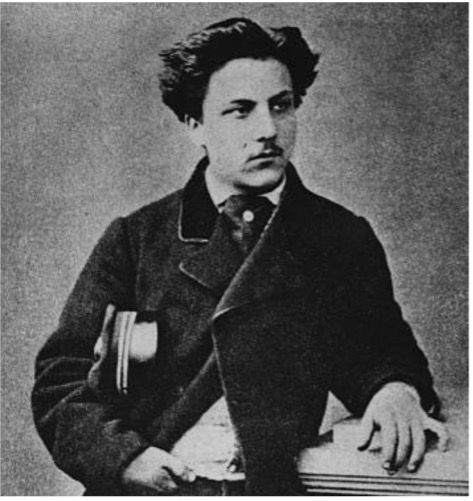 My personal journey with Fauré really started in 2016. I was asked to perform his first Piano Quintet, Op. 89, at a chamber music festival in Germany. Although this is a work from his middle period, it contains elements of his late style. His late works distinguish themselves from his earlier ones by a seemingly more complex language, which is actually suffused with a new simplicity. The Quintet made a strong impression on me with its most touching beginning and its pure and sensual second movement. This was also my first meeting with Steven Isserlis whose playing, love and care for the music and composer broadened my understanding of Fauré's world.
My personal journey with Fauré really started in 2016. I was asked to perform his first Piano Quintet, Op. 89, at a chamber music festival in Germany. Although this is a work from his middle period, it contains elements of his late style. His late works distinguish themselves from his earlier ones by a seemingly more complex language, which is actually suffused with a new simplicity. The Quintet made a strong impression on me with its most touching beginning and its pure and sensual second movement. This was also my first meeting with Steven Isserlis whose playing, love and care for the music and composer broadened my understanding of Fauré's world.
Jean-Michel Nectoux – one of the most important and perceptive Fauré experts – retells a story related by Emmanuel Fauré-Fremiet, Fauré’s younger son. Emmanuel recalled his enchantment when as a child, hidden behind the living room door of their apartment, he listened to his father playing the beginning of the First Piano Quintet with the Ysaye quartet. “But I never heard it again. One day I emboldened myself and shyly sang to my father the first few bars of the lost melody. I will never forget the way my father took me in his arms, kissed me with emotion, and played for me at the piano the entire opening sequence.”
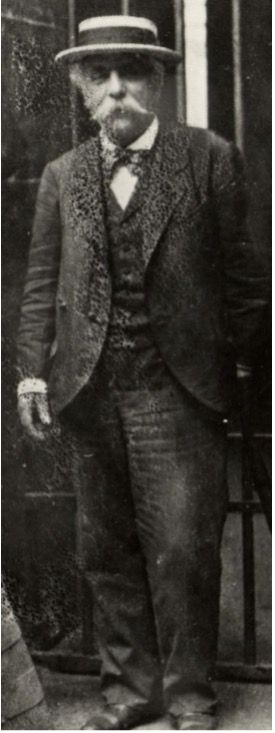 Fauré seems to have been such a kind and good soul. Throughout his life, and despite enduring financial difficulties and the increasing deafness of his later years, he managed to maintain a positive view to life. His Requiem even brings radiance to the idea of death. Fauré chose to remove the Dies Irae movement and added instead a Pie Jesu:
Fauré seems to have been such a kind and good soul. Throughout his life, and despite enduring financial difficulties and the increasing deafness of his later years, he managed to maintain a positive view to life. His Requiem even brings radiance to the idea of death. Fauré chose to remove the Dies Irae movement and added instead a Pie Jesu:
“It has been said that my Requiem does not express the fear of death and someone has called it a lullaby of death. But it is thus that I see death: as a happy deliverance, an aspiration towards happiness above, rather than as a painful experience. [...] Is it not necessary to accept the artist’s nature? As to my Requiem, perhaps I have also instinctively sought to escape from what is thought right and proper, after all the years of accompanying burial services on the organ! I know it all by heart. I wanted to write something different.”[1]
But it was not all gentleness. Fauré was a passionate man, and one can feel ecstatic ardour surging through his music. The fervour of his art was also mirrored in his love-life. In his thirties, he was engaged to Marianne Viardot, daughter of Pauline Viardot, the famous singer, composer and salon hostess. Marianne was actually frightened by Fauré’s burning love, however, and after a few months she broke off the engagement. In 1886, he consented to an arranged marriage with Marie Frémiet, with whom he had two sons. The couple retained great affection for each other, but they were both unhappy in the relationship. Fauré ended up having many liaisons with other women - including Emma Bardac, later the wife of Debussy.
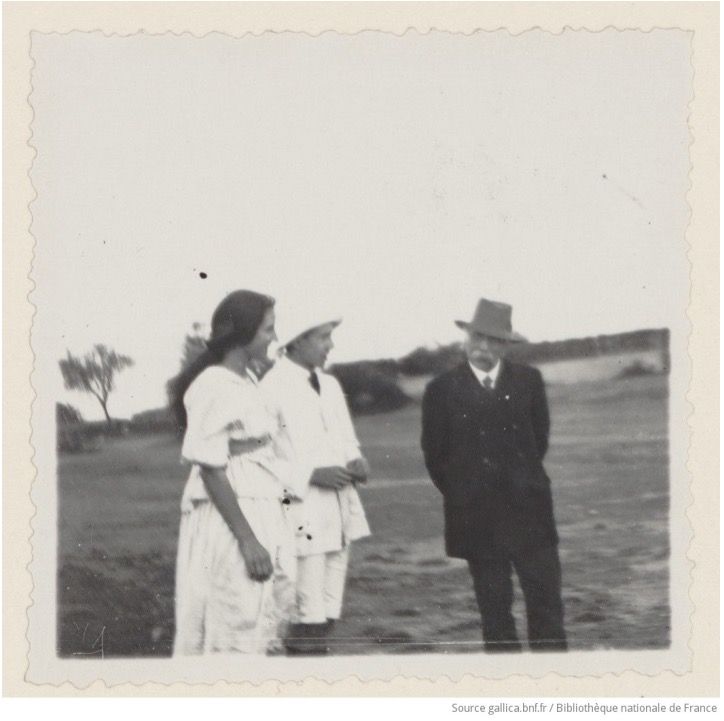 In 1900, however, he met the love of his life: Marguerite Hasselmans, a talented pianist and according to him, the finest interpreter of his music. (Unfortunately, no recording of her playing exists.) She was 24 and him 55. He bought an apartment which they shared, and they stayed together until his death. Their relationship was fairly public, resembling a second marriage; but he remained married to Marie, since divorce was at that time so frowned upon. Furthermore, he seems to have avoided hurting Marie, who remained his musical confidante. (Pictured right: Fauré on a walk in Fréjus with Margueties and Gustave Bret, 1917).
In 1900, however, he met the love of his life: Marguerite Hasselmans, a talented pianist and according to him, the finest interpreter of his music. (Unfortunately, no recording of her playing exists.) She was 24 and him 55. He bought an apartment which they shared, and they stayed together until his death. Their relationship was fairly public, resembling a second marriage; but he remained married to Marie, since divorce was at that time so frowned upon. Furthermore, he seems to have avoided hurting Marie, who remained his musical confidante. (Pictured right: Fauré on a walk in Fréjus with Margueties and Gustave Bret, 1917).
It’s quite amusing to notice the recurrence of the sound “Ma” in the names of his main love relationships: Marianne, Marie, Marguerite. And he worked at la Madeleine...
“How many times have I asked myself what use music is?,” he declared to Marguerite Long. “And what am I translating? What feelings? What ideas? How can I express something I do not understand myself?” His complete devotion to music touched me very much. Saint-Saëns said that Fauré – his favourite student, with whom he enjoyed a father-son relationship - lacked ambition: all he cared for was to work on his art. This complete sincerity also appears in his teaching. Nadia Boulanger, who entered Fauré’s composition class at the Conservatoire aged 14, writes: “His influence was invisible, undefinable; it didn’t come from what he could have expected to teach us, but from what he was. We had for him a sort of veneration, his extreme simplicity protected us from false pretentiousness, from all pretentiousness. We were dominated by this master who never had the slightest desire to dominate anyone, being enough master of himself to care for others only to the extent of understanding them better; we were aware of this wish to understand us and to advise each one what would help them find their own path easier.”
Watch Irène Duval's previous Wigmore Hall performance of Fauré's Second Violin Sonata with Angus Webster on YouTube. Due to the semi-indisposition of Joshua Bell last night, she played it two days earlier than advertised with Connie Shih
As I was preparing my recording of Fauré’s violin pieces and Second Sonata, my father was slowly losing his battle against cancer. He passed away a few months before the sessions, the day after my birthday. More than ever, I felt a need to play and hear music that would help appease the pain and celebrate life. Music heals, and Fauré’s ideal worlds embraced me with their light and love, connecting me with a bit of heaven. For me, his works contain some of the most consoling, optimistic, beautiful, sensitive music I’ve ever heard.
I hope anyone reading this may enjoy their magic!
- Steven Isserlis and friends, including Duval, celebrate Fauré and others at the Wigmore Hall over the next four days. A review of last night's opening concert will appear shortly
- Duval's new recording of the Second Violin Sonata and other works with pianist Angus Webster is on the Capriccio label
- More classical reviews on theartsdesk

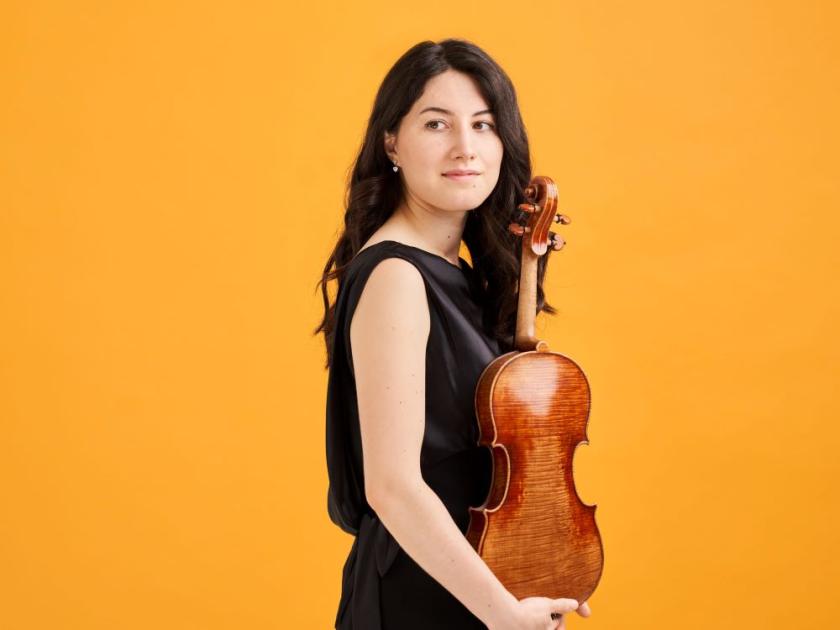











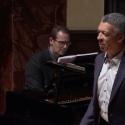
Add comment